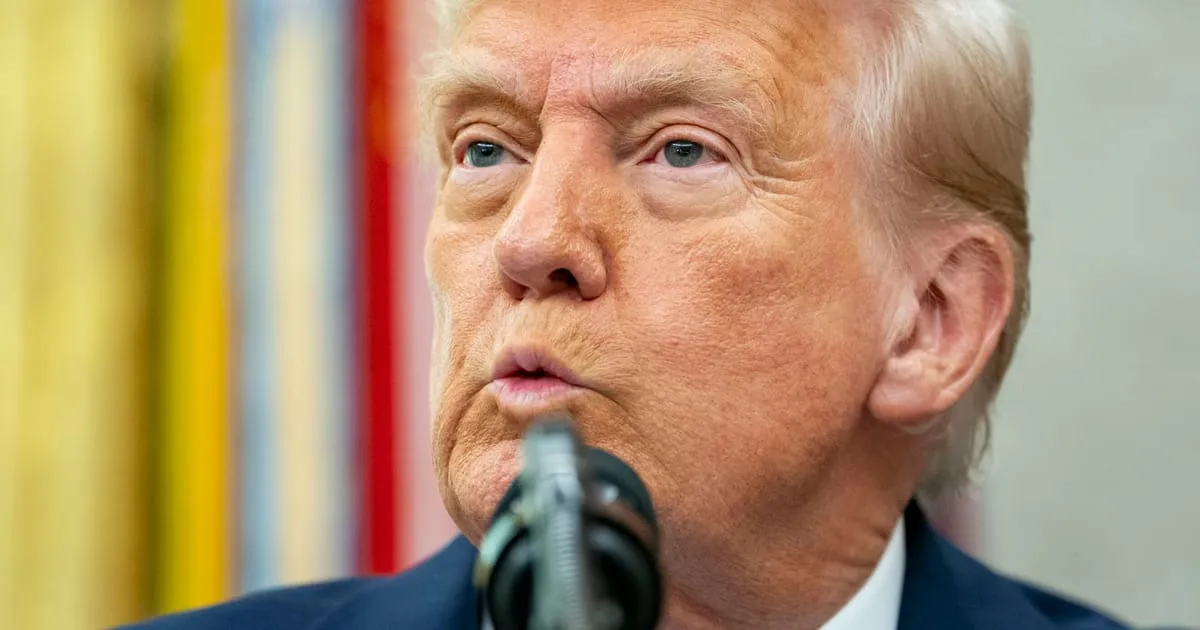
In a recent interview with NBC, United States President Donald Trump expressed his strong discontent regarding the ongoing conflict in Ukraine, specifically addressing the actions of Russian President Vladimir Putin. Trump asserted that significant financial penalties would be imposed on Russian crude oil imports if Russia fails to agree to a ceasefire within the next month. His remarks come in light of Putin's controversial call for the ousting of Ukrainian President Volodymyr Zelenskyy through a United Nations-backed transitional government.
During the interview, Trump conveyed his frustration, stating, “If Russia and I are unable to make a deal on stopping the bloodshed in Ukraine, and if I think it was Russia’s fault — which it might not be — but if I think it was Russia’s fault, I am going to put secondary tariffs on oil, on all oil coming out of Russia.” He emphasized that his administration would implement a 25 percent tariff on all Russian oil imports, warning that any business transactions involving Russian oil would render companies ineligible to operate within the United States.
Furthermore, Trump indicated that the tariffs could range between 25 to 50 percent, showcasing his determination to hold Russia accountable for its actions in Ukraine. This proposed measure highlights the ongoing tensions between the U.S. and Russia, especially in the context of the war in Ukraine.
The European Union has already taken significant steps by enforcing an embargo on seaborne shipments of Russian oil following Putin's invasion of Ukraine. Despite these sanctions, some EU member nations, such as Hungary and Slovakia, continue to acquire Russian oil through pipeline routes. Additionally, other NATO allies, including Turkey, alongside countries like China and India, have increased their purchases of Russian crude oil, further complicating the geopolitical landscape.
Refined products such as petrol, diesel, and jet fuel derived from Russian oil are still being sold globally, including in the U.S. and Europe, which raises questions about the effectiveness of the sanctions. Trump's intervention comes at a time when discussions of improved Russia-U.S. relations have surfaced, particularly after the White House hinted at possibly easing sanctions in exchange for a ceasefire in the Black Sea region.
European leaders have reacted vehemently against the notion of resuming purchases of Russian fossil fuels without a lasting peace agreement and justice for Ukraine. The sentiment among European nations reflects a deep-seated commitment to supporting Ukraine in its struggle against Russian aggression.
Amid these developments, U.S. Secretary of State Marco Rubio recently downplayed the likelihood of a high-level dialogue aimed at resolving the conflict, stating, “there's a lot of work to be done, and I think you have to make more progress on a technical level.” This statement underscores the complexities involved in reaching a resolution and the ongoing efforts required to address the situation in Ukraine.